Are you tired of scrolling through endless dog pictures, trying to find the perfect breed that suits your lifestyle? Well, look no further because the Cockalier mixed dog breed might just be the one you've been searching for.
With its adorable appearance and charming personality, this breed is truly a crowd-pleaser. But what sets the Cockalier apart from other breeds? What are its unique characteristics and facts that make it so special?
In this discussion, we will unveil the secrets behind this endearing mixed breed, leaving you eager to learn more about its pictures, characteristics, and fascinating facts.
Key Takeaways
- Cockaliers are a mixed breed dog, a cross between the Cavalier King Charles Spaniel and Cocker Spaniel.
- They are friendly, gentle, and intelligent.
- Adoption is recommended as they can be found in shelters and breed-specific rescues.
- Cockaliers can adapt well to apartment living, but factors such as energy levels and behavior towards neighbors should be considered.
Breed Background
The breed background of the Cockalier mixed dog breed is an important aspect to consider when understanding their unique characteristics and traits. Cockaliers are a cross between the Cavalier King Charles Spaniel and Cocker Spaniel, inheriting the best traits from both of their parents. They're friendly, gentle, and intelligent dogs.
If you're considering adopting a Cockalier, you can often find them in shelters or breed-specific rescues. Cockaliers can adapt well to apartment living, not just because of their size but also because of their energy levels and behavior towards neighbors.
While certain small dog breeds with high energy levels can thrive in apartments, desirable qualities in an apartment dog include being quiet, low-energy, and polite towards other residents.
Best Traits of Cockaliers
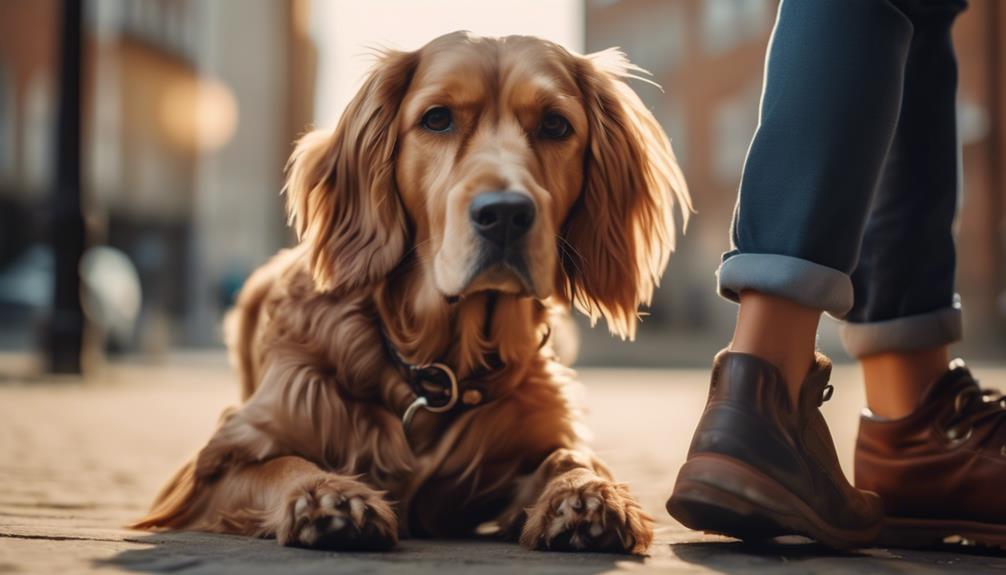
Cockaliers, the mixed breed dogs that are a cross between the Cavalier King Charles Spaniel and Cocker Spaniel, possess a combination of the best traits from both of their parents. These dogs are known for their friendly and gentle nature, making them excellent companions for families and individuals alike.
Cockaliers are intelligent and eager to please, which makes them highly trainable. They're also adaptable dogs, able to thrive in various living environments, including apartments. With their low-energy levels, Cockaliers can adjust well to apartment living, making them suitable for those with limited space.
Additionally, their affectionate and loyal nature makes them great family pets. Overall, Cockaliers are a wonderful mix of traits that make them loving, intelligent, and adaptable companions.
Adoption and Rescue Options

When considering adding a Cockalier to your family, adoption and rescue options are highly recommended. Cockaliers can be found in shelters and breed-specific rescues, providing an opportunity to give a loving home to a dog in need. By adopting, you not only save a life but also contribute to reducing the number of dogs in shelters.
Rescue organizations often have Cockaliers of different ages, sizes, and temperaments, allowing you to find the perfect fit for your family. Additionally, adoption fees are typically lower than purchasing a dog from a breeder. When adopting, you may also have the chance to meet the dog's previous owners or foster family, giving you valuable insights into their personality and behavior.
Factors for Apartment Living
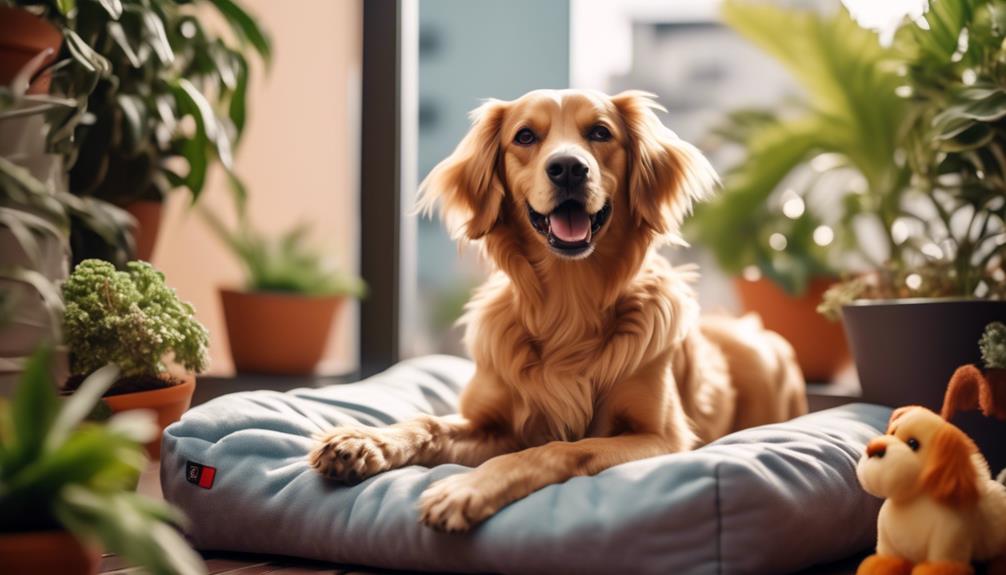
If you live in an apartment and are considering adding a Cockalier to your family, there are important factors to consider.
Cockaliers can adapt well to apartment living, but size alone shouldn't be the sole determinant when choosing a dog for an apartment.
Factors such as energy levels and behavior towards neighbors should also be considered.
Certain small dog breeds with high energy levels can still thrive in apartments.
Desirable qualities in an apartment dog include being quiet, low-energy, and polite towards other residents.
When choosing a dog for apartment living, prioritize qualities such as being quiet, low-energy, calm indoors, and displaying good manners.
Dogs who are resilient and can bounce back from mistakes or inconsistencies are a good match for novice owners.
Size Vs. Energy Levels for Apartments

Considering the size and energy levels of a dog is essential when choosing a breed that's suitable for apartment living. Here are some factors to consider when it comes to size vs. energy levels for apartments:
- Size alone shouldn't be the sole determinant. Certain small dog breeds with high energy levels can still thrive in apartments.
- Desirable qualities in an apartment dog include being quiet, low-energy, and polite towards other residents.
- Some larger breeds can adapt well to apartment living with lower energy levels.
- Consider your neighbors' comfort when selecting a dog for an apartment. Prioritize qualities such as being quiet, low-energy, calm indoors, and displaying good manners.
Desirable Qualities in Apartment Dogs
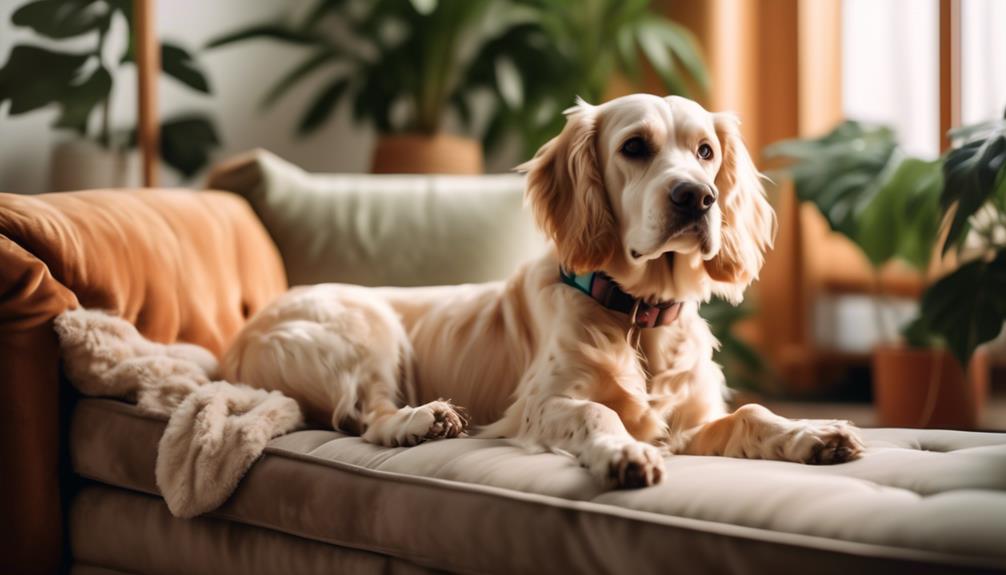
Now let's explore the desirable qualities to look for in a dog that will thrive in an apartment setting. When choosing a dog for an apartment, it's important to consider their energy levels, behavior towards neighbors, and overall suitability for living in a smaller space. Here are some desirable qualities to keep in mind:
| Qualities | Description |
|---|---|
| Quiet | A dog that doesn't bark excessively will help maintain a peaceful environment. |
| Low-energy | Dogs that have lower exercise needs are better suited for apartment living. |
| Polite towards other residents | A dog that is friendly and well-behaved around neighbors is important for maintaining good relationships. |
| Calm indoors | Dogs that are calm and relaxed indoors are better suited for apartment living. |
| Good manners | Dogs that display good manners, such as not jumping on people or furniture, are ideal for apartment living. |
Choosing the Right Apartment Dog
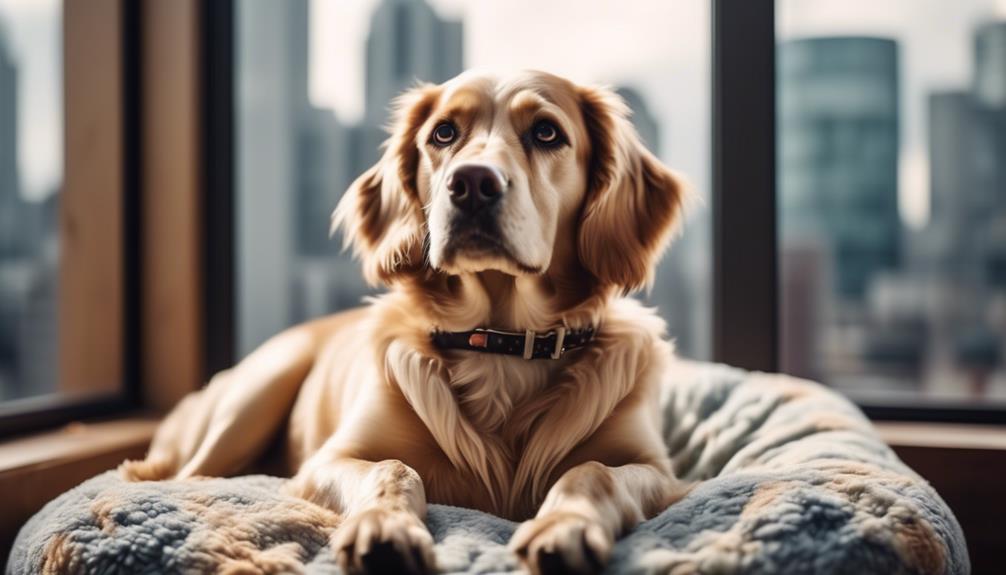
To find the perfect dog for your apartment, consider their energy levels, behavior towards neighbors, and overall suitability for living in a smaller space. Here are four factors to consider when choosing the right apartment dog:
- Size alone shouldn't be the sole determinant. Certain small dog breeds with high energy levels can still thrive in apartments.
- Desirable qualities in an apartment dog include being quiet, low-energy, and polite towards other residents.
- Consider your neighbors' comfort when selecting a dog for an apartment.
- Prioritize qualities such as being quiet, low-energy, calm indoors, and displaying good manners.
It's important to remember that some larger breeds can adapt well to apartment living with lower energy levels. Ultimately, finding a dog who's a good fit for apartment living involves considering their energy levels, behavior, and overall compatibility with living in a smaller space.
Consideration for Neighbors' Comfort
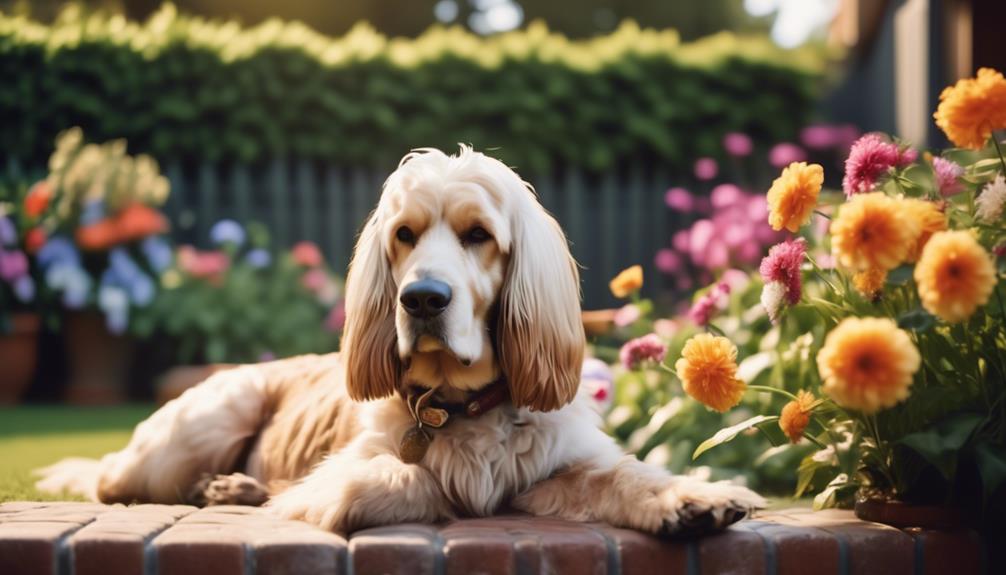
When selecting the right apartment dog, it's important to also consider the comfort of your neighbors. Certain dog breeds are more suitable for apartment living than others, as they tend to be quieter, have lower energy levels, and display good manners towards other residents.
Cockaliers, for example, can adapt well to apartment living due to their friendly and gentle nature. They're generally quiet and low-energy, making them a good choice for apartment dwellers. However, it's crucial to prioritize qualities such as being quiet, low-energy, and calm indoors when selecting a dog for apartment living.
Characteristics for Specific Environments
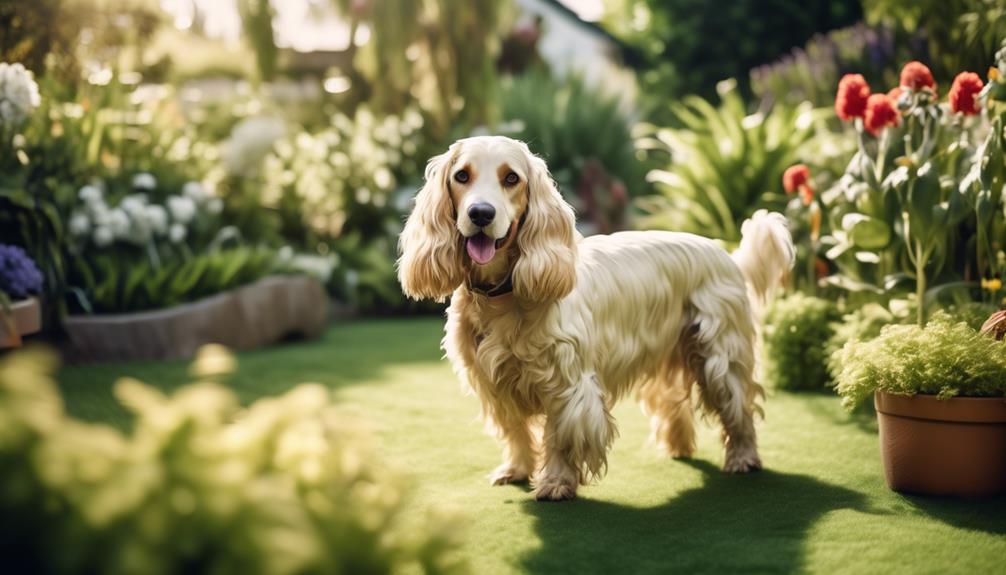
Consider the specific characteristics of your environment when choosing a dog breed. Here are some factors to keep in mind:
- Noise and Chaos: Low-sensitivity dogs can handle a noisy, chaotic household and a more assertive owner.
- Alone Time: Dogs that tolerate being alone do best when a family member is home during the day or can go to work with their owner.
- Climate: Breeds with short coats and little body fat are vulnerable to the cold. Dogs with low cold tolerance need to live inside in cool climates. On the other hand, dogs with thick, double coats are more vulnerable to overheating. Breeds with short noses, like Bulldogs or Pugs, are also more heat-sensitive.
- Family Compatibility: Dogs that are devoted to both adults and children make wonderful additions to family households. Consider the temperament and breed origin to gauge a dog's overall friendliness and compatibility with your family.
Cold Tolerance and Coat Types
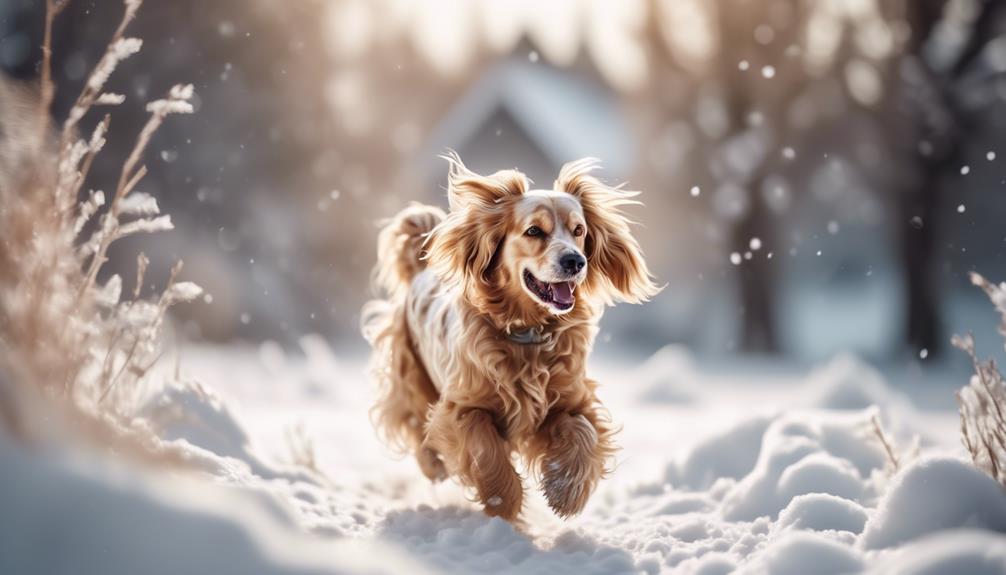
Cold tolerance and coat types are important considerations when choosing a dog breed.
Cockaliers have a moderate tolerance for cold weather due to their coat types. They have a medium-length, silky coat that requires regular grooming to prevent matting and tangling.
While their coat provides some insulation, they may still need extra protection in extremely cold temperatures. It's important to keep them warm and dry during cold weather to prevent discomfort and potential health issues.
Additionally, their coat types make them more prone to shedding, so regular brushing is necessary to keep their coat healthy and free from excessive shedding.
Heat Sensitivity and Short-Nosed Breeds
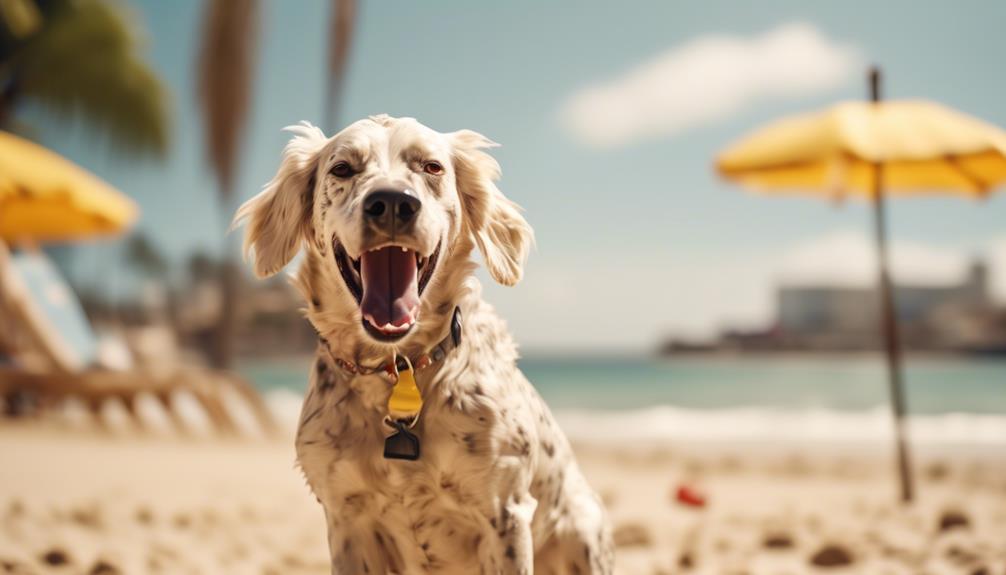
Short-nosed breeds, such as Bulldogs or Pugs, are more heat-sensitive due to their anatomy. Here are four reasons why these breeds are more susceptible to heat:
- Brachycephalic anatomy: Short-nosed breeds have a skull structure that restricts airflow, making it harder for them to cool down.
- Less efficient cooling system: These breeds have shorter nasal passages and narrower airways, which limits their ability to regulate body temperature through panting.
- Poor heat dissipation: Bulldogs and Pugs have shorter muzzles and fewer sweat glands, making it difficult for them to release heat from their bodies.
- Increased risk of heatstroke: Due to their heat sensitivity, short-nosed breeds are more prone to heatstroke, a potentially life-threatening condition.
It's crucial to provide these breeds with extra care during hot weather, ensuring they have access to shade, fresh water, and a cool environment to prevent overheating and potential health issues.
All-Around Friendliness and Family Compatibility
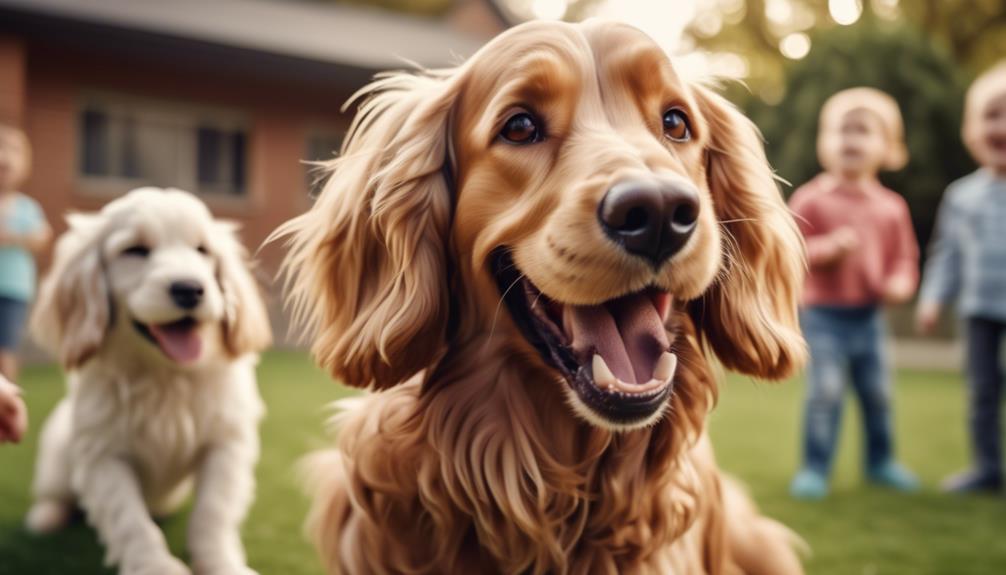
After understanding the heat sensitivity of short-nosed breeds, it's important to explore the all-around friendliness and family compatibility of different dog breeds.
While dogs are known for their unconditional love and loyalty, some breeds may be more outwardly affectionate than others. Temperament and breed origin can influence a dog's affectionate nature. However, the bond between a human and a dog isn't solely dependent on a dog's affectionate nature.
Dogs that are devoted to both adults and children make wonderful additions to family households. When considering a dog for your family, it's vital to prioritize qualities such as friendliness, gentleness, and intelligence.
Cockaliers, a mix of Cavalier King Charles Spaniel and Cocker Spaniel, are known to be friendly, gentle, and intelligent, making them an excellent choice for families seeking a loving and compatible companion.
Frequently Asked Questions
What Is the Average Lifespan of a Cockalier?
The average lifespan of a Cockalier is around 12 to 15 years. They are a mixed breed dog known for inheriting the best traits from both the Cavalier King Charles Spaniel and Cocker Spaniel.
Are Cockaliers Prone to Any Specific Health Issues?
Cockaliers can be prone to specific health issues. Regular vet check-ups are important to catch any potential problems early. Take care of your Cockalier's health to ensure a happy and long life together.
Do Cockaliers Require a Lot of Exercise and Physical Activity?
Cockaliers require regular exercise and physical activity to stay healthy and happy. They have moderate energy levels and enjoy walks, playtime, and interactive toys. Providing them with mental stimulation is also important for their overall well-being.
Are Cockaliers Known to Be Good With Children and Other Pets?
Yes, cockaliers are known to be good with children and other pets. They are friendly and gentle, making them great companions for the whole family. Their loving nature and adaptability make them a wonderful addition to any home.
Can Cockaliers Be Trained Easily and Are They Generally Obedient?
Yes, Cockaliers can be trained easily and are generally obedient. They are intelligent and eager to please. Consistent training and positive reinforcement methods will help them learn quickly and respond well to commands.
What Are the Similarities and Differences Between Cockalier and Chipin Mixed Dog Breeds?
The cockalier and chipin mixed dog breed facts share some similarities in their small size and friendly temperament. However, the cockalier is a mix between a cocker spaniel and a cavalier king charles spaniel, while the chipin is a mix between a chihuahua and a miniature pinscher, resulting in different physical and behavioral traits.
Conclusion
In conclusion, if you're looking for a furry companion that combines the best traits of the Cavalier King Charles Spaniel and Cocker Spaniel, the Cockalier mixed dog breed is an excellent choice.
With their friendly nature, intelligence, and adaptability to apartment living, Cockaliers make great family pets. Remember to consider factors like energy levels and behavior towards neighbors when choosing a dog for apartment living.
Whether you're a first-time owner or experienced, the Cockalier can bring joy and companionship to your home.




